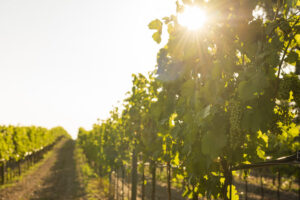
The biodynamic wines of Casa Di Baal embodies a holistic approach to viticulture and winemaking, underscoring the profound interconnectedness of every facet of the farming process. The biodynamic winemaking interconnected web encompasses the vines, humans, soil, the moon, and the influence of other celestial bodies.
This is ethical farming, organic practices that heighten our awareness of the intricate interplay between us and the land. It emphasizes sustainable and regenerative approaches that foster well-being and vitality, not only within the vineyard but also within the broader community and for generations to come. While bearing similarities to organic farming, biodynamic viticulture and winemaking surpasses organic farming by integrating spiritual and cosmic dimensions into their agricultural practices.
As you might anticipate, wines crafted from organic grapes are minimal-intervention creations, often the result of spontaneous fermentation with only natural ingredients and no added sulfur, winemaking additives, or filtering. These wines break free from the constraints of human ego, and many believe they have a brighter, fresher, and truer varietal expression – it’s our unburdened conscience at play.
The very essence of biodynamic principles makes them an ideal complement, if not a requirement, for authentic natural wines of terroir, wines that embody a sense of place.
The Heart of Biodynamic Farming and Principles
When you dive into biodynamic agriculture, you might envision time taking the form of a spiral. Austrian philosopher Rudolf Steiner introduced biodynamic philosophy in post-World War I Vienna. His fusion of scientific principles with a spiritual reverence for nature resonates even a century later, especially in times of turbulence that seem to follow a hidden spiral.
Steiner regarded the farm as a vital, complete, living organism that thrives through a holistic view of agriculture and regenerative practices. Integrated and interdependent, biodynamic farmers view soil, compost, adjacent forests, plants, animals, insects, and the people tending to them as a harmonious system that nurtures the land. It listens to and responds to its unique needs, striving for self-sustainability. A balanced, energetic environment yields fruit of exceptional quality and ripeness.
The Biodynamic Environment
Natural ecosystems flourish with biodiversity, and this principle extends to the core of biodynamic vineyards. Surrounding forests, cover crops, and flower-filled meadows create a haven for pollinators, while animals, treated with compassion, work together to maintain nutrient equilibrium in the soil. Problems arising from monoculture or conventional practices are minimized because the system is in harmony. There’s no need for synthetic fertilizers or pesticides to “fix” the balance.
Vineyards inherently carry a captivating, evocative allure, but a biodynamic vineyard is a place where you might be tempted to pitch your tent and simply listen. A goat or duck might join you in this serene setting.
Biodynamic Preparations
Biodynamic preparations consist of specialized substances derived from natural materials, including minerals, plants, and animal manure. These substances are employed to enrich soil vitality, augment nutrient accessibility, and foster biodiversity within the farm ecosystem.
Usually administered in modest quantities, these preparations often undergo fermentation and are dynamically stirred in a particular manner before application. By following a specific set of biodynamic practices and various tasks, wine growers can obtain a biodynamic certification within the wine industry, which sets them apart from conventional wine.
The original set of biodynamic preparations included 9 special compost preparations:
- Preparation 500: Also known as “Horn Manure,” entails placing cow manure inside cow horns and burying them in the ground during winter. This method rejuvenates the soil.
- Preparation 501: Referred to as “Horn Silica,” is crafted from crushed quartz and is administered as a spray to enhance a plant’s ability to absorb light and warmth.
- Preparation 502: Derived from yarrow flowers, contributes to soil vitality and encourages balanced plant growth.
- Preparations 503-507: Hailing from various specific plant materials such as chamomile, stinging nettle, oak bark, dandelion, and valerian, each serve a distinct purpose in nurturing soil and plant health.
- Preparation 508: Crafted from horsetail, aids in regulating fungal growth within the soil.
Harmonizing with Celestial Sky Rhythms
While encouraged, biodynamic-certified vineyards aren’t compelled to follow one of the most intriguing aspects of biodynamic agriculture – its cosmic calendar. Steiner advocated aligning all farm activities with the cosmic rhythm, optimizing the subtle influences of the celestial bodies like the sun, moon, and stars on planting, tending, and harvesting.
Maria Thun, a prominent advocate of biodynamic methods in the 1950s, embraced this idea and developed a detailed calendar based on her observations in her own garden. You can find her biodynamics farmer’s almanac published each year.
This calendar harks back to ancient wisdom, invoking the classical elements of Earth, Fire, Air, and Water, each associated with a related zodiac sign. Corresponding days are Root, Fruit, Flower, and Leaf Days. Root days, influenced by Earth, favor pruning. Fruit days, associated with warmth, are perfect for grape harvesting. Flower days, linked to Air and Water, offer a rest day in the vineyard, while Leaf days, associated with Water, are ideal for pruning. Biodynamic winemakers align their farming practices with the lunar calendar.
The Demeter Federation provides valuable information, training, and certification in biodynamic methods, which are equally at home in your garden as they are in their vineyards. And honestly, who could resist the allure of lying under the stars and cuddling with your favorite goat? It’s a temptation that needs no further justification.
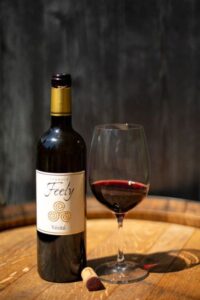

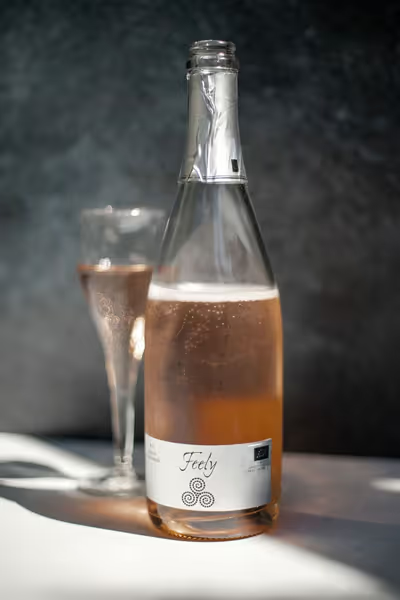

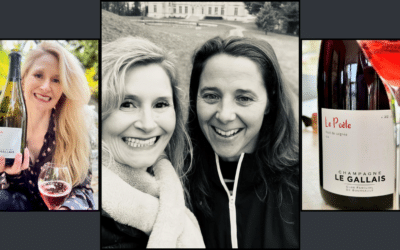
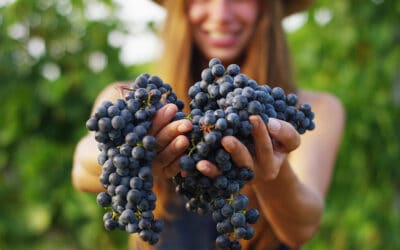
0 Comments